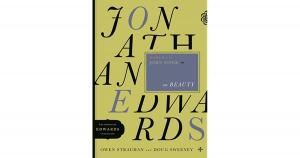 David Brooks poses an interesting question in his column today:
David Brooks poses an interesting question in his column today:
Two things happened to Sandra Bullock this month. First, she won an Academy Award for best actress. Then came the news reports claiming that her husband is an adulterous jerk. So the philosophic question of the day is: Would you take that as a deal? Would you exchange a tremendous professional triumph for a severe personal blow?
He concludes his editorial with this–it’s worth chewing on:
[M]ost of us pay attention to the wrong things. Most people vastly overestimate the extent to which more money would improve our lives. Most schools and colleges spend too much time preparing students for careers and not enough preparing them to make social decisions. Most governments release a ton of data on economic trends but not enough on trust and other social conditions. In short, modern societies have developed vast institutions oriented around the things that are easy to count, not around the things that matter most. They have an affinity for material concerns and a primordial fear of moral and social ones.
Adultery and the dissolution of a marriage is always a complicated matter, and I of course don’t know the particulars of this sad situation. I can say, though, that Brooks’s words make one think, especially as so many of us are thoroughly enmeshed in modernity, with its hyper-speed, adoration of status and money, and distaste for traditional–seemingly enduring–things.
**********
Collin Hansen reflects on John Piper’s recent announcement to his church that he will be taking some time off to focus on his marriage and soul. Hansen’s historical work in the piece deserves careful pondering.
**********
As you may have seen elsewhere, the Christian Science Monitor just did a story on surging Calvinism that prominently features Capitol Hill Baptist Church. I recognized a number of people in the pictures–pretty cool. With thanks to Stuart Taylor, one of my mentors in the faith, for the link.
**********
Some of you may be watching the engrossing tv show Parenthood on NBC. It follows the various branches of an extended family as they confront the challenges both traditional and modern that so many families today wrestle with. I thought this piece on the show was worthy of attention. The author, Heidi Stevens of the Chicago Tribune, calls for one of the show’s characters, Julia Braverman-Graham, to continue to honestly reflect the realities of working motherhood.
In particular, this section of the essay struck me as noteworthy:
So do me a favor. Don’t blow this. Don’t be picture-perfect “Cosby Show” Clair Huxtable working mom. Don’t be “Desperate Housewives'” Lynette Scavo mess of a working mom. The archetypes don’t leave a lot of room for being insanely enamored of your kids.
Just be a working mom who desperately tries to please her boss, compete with the stay-at-home moms for face-time, find more time for her daughter and still squeeze in wife/sister/daughter/homeowner duties.
I know. It sounds impossible. But here’s a tip: Have more tender moments with Sydney. Cut out paper dolls. Do each other’s nails. Make pancakes and play Candyland and Uno and tell her stories about your childhood.
I discussed this article with my wife, a homemaker who identified the excellent point I now seek to develop. Many modern women today, intimidated by archetypal June Cleaver and Betty Huxtable figures, scoff at these figures, viewing their lives as impossible to achieve. While few stay-at-home moms would claim that their lives are complex, it seems unrealistic to suggest that traditional womanhood makes life harder than modern womanhood.
Why? Because the Tribune piece, as is common to more contemporary feminism, seems to suggest that women can do it all. They can be a lawyer working 90-hour weeks, “have more tender moments” with their kids, and ” still squeeze in wife/sister/daughter/homeowner duties.” Let me just say that a woman in action boggles the mind. I grew up under a very gifted woman and I live with one now.
However, I have to call bluff here. How on earth can even the most omni-competent mother simultaneously complete all her responsibilities at a very demanding job, increase her special time with her children, and function in all her other roles–wife, family member, child? That’s unrealistic. It’s unfair. It’s exhausting, damaging, and dangerous, whether for the woman herself, her kids, or her marriage.
Maureen Dowd, a feminist’s feminist, noted some time ago that “blue is the new black.” In public, and to her credit, she noted that modern women are unhappy, and that this unhappiness is tied to a feminist way of life. She would not agree with much of what I stand for, I’m sure, but her candor suggests what I’m getting at here: the Julia Braverman-Graham model is untenable. It won’t hold.
Or, if it does hold, it will come at great cost. There is no substitute for quantity with children. If you want to love them and see them flourish, you simply must spend lots of time with them–not time on your cell while they play, not time on the computer while they try to get your attention–but real, thick, loving, focused time. Moms have an essential role to play on this point, even as dads do as well when their daily out-of-the-home work ceases.
Heidi Stevens is a gifted writer, and I’m guessing she’s a very sweet mother, but her model is deeply flawed. Just as men don’t need to run themselves into the ground for the sake of career, women don’t need to run themselves into the ground for the sake of some vaunted but impossible ideal of womanhood. Nobody said June Cleaver’s life was easy. There’s no way, however, that an honest viewer could say that Julia Braverman-Graham’s life is any easier. The exhaustion, frustration and guilt she feels stems in substantial part not from the reactions of others, but from the model she follows.
(Image: Babble.com)











